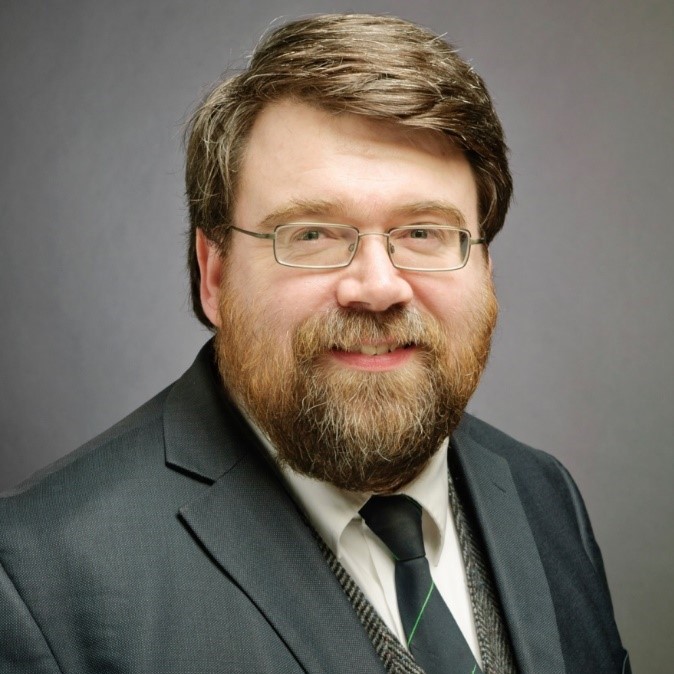John Sheridan
University College Dublin, IrelandFor his leadership in the promotion of optics education, research, and commercial development, especially in his native Ireland.

John Sheridan, Professor of Optical Engineering at University College Dublin (UCD), Ireland, knew he wanted to work in science from around age 11. However, it was not until his final year of undergraduate studies in electrical and electronic engineering that he took a course on electromagnetics and materials. He was so fascinated by the material that he read the entire course textbook, written by Laszlo Solymar, in one weekend.
At the end of his undergraduate studies he hoped to go to the University of Oxford, UK to study with Solymar, but did not have the money and wasn’t initially able to get a scholarship. He elected to take a position at Georgia Institute of Technology, USA, where he worked with OSA Fellow Bill Rhodes, now a professor at Florida Atlantic University, USA, and obtained his Master’s degree. During this time, he realized how little he really knew about optics and thoroughly enjoyed the opportunity to learn new and exciting things. After his time at Georgia Tech, John reapplied for, and received, a scholarship to attend Jesus College Oxford.
At Oxford, he was supervised by Solymar, as well as OSA Fellow Colin Sheppard, and studied electromagnetism, holography and confocal microscopy under their supervision, completing his PhD in 1991. He says that most achievements come from a combination of “hard work and good luck” and advises young scientists to keep trying if they are not immediately successful.
He completed postdoctoral fellowships in Germany (Erlangen) and then took a research position in Italy. Having gotten married and started a family, he decided it was time to settle down. He returned to Ireland in 1997 to work as a lecturer in Dublin Institute of Technology, and three years later joined the UCD School of Electrical and Electronic Engineering.
Over the past 18 years, in addition to being a professor at UCD and supervising 21 PhD students, he has co-founded several companies, one such is Equilume, which develops bio-optimized lighting for horses. John is an active engineering consultant and directs the master’s industry internship program at UCD. He is a proud OSA member founding and acting as student advisor to the UCD OSA Student Chapter for over 10 years. He has also served on the editorial board of Applied Optics and recently organized the Feature Issue “Optics in Ireland”. In September, UCD will begin offering a Master’s degree in Optical Engineering, led by John.
John believes it is a privilege to work at a university and to be able to interact with motivated and clever students. His former PhD students hold positions all over the world. He says it’s important to realize that “people come into their own at different times” and that just because someone might not have outstanding exam results right now does not mean they won’t go on to make great discoveries or become a multimillionaire.
You will be “surprised at what you are capable of once you really have to do something,” he says, and encourages others to take advantage of the opportunities they are given. John never imagined he would start companies or be a consultant, yet he has done both. “Engineering is a very human endeavor,” he adds, as it attempts to solve practical problems. Currently, he is working in biomedical sensing which involves collaborators from a number of different fields and allows him to learn the languages of different areas of research. “As an engineer, you often end up being the translator,” he says.
He also notes that the success of projects depends on the “right motivation at the right time.” John explains that this is an exciting time for optics as it is becoming a much larger part of the technology that people use every day. Advances in augmented and virtual realities and mobile phone technologies are providing lots of opportunities for those interested in optics.
Conferences, he explains, are useful for meeting people and transferring ideas which can open doors to new approaches to the problem you are trying to solve. He notes that work is moving at a faster pace every day. As more and more people join the field it can be increasingly difficult to maintain cohesion and communication. People may not know each other personally as well as in the past, so conferences, as well as professional societies in general, help to create and maintain a sense of community.
“There is no end to optical research” he says. “There is always more [to discover] and no one has ever solved the exact problem you want to, in the way you want to”. Pursue what you are interested in, not what others tell you to” he advises.
Profile written by Jeanette Gass
